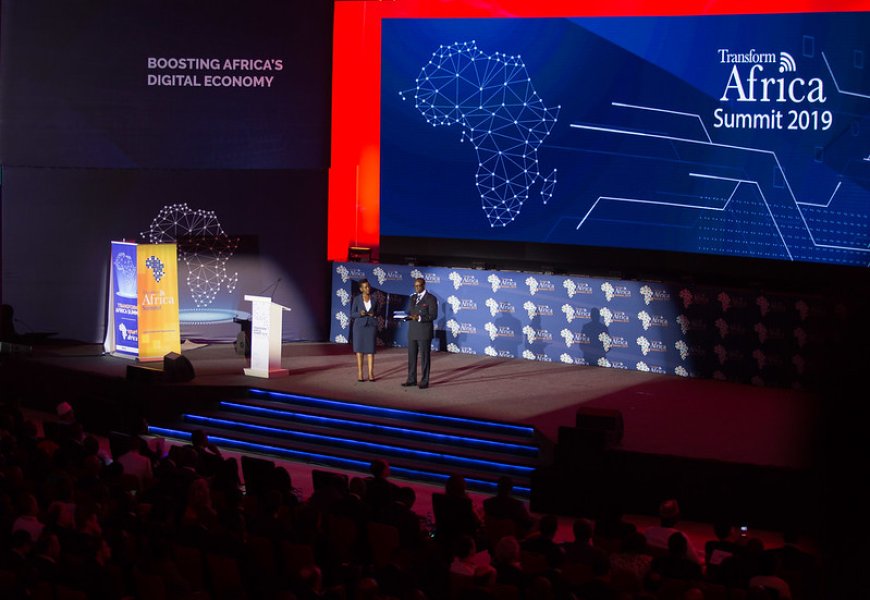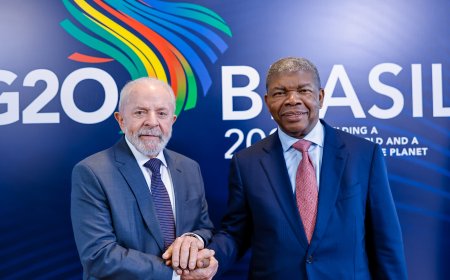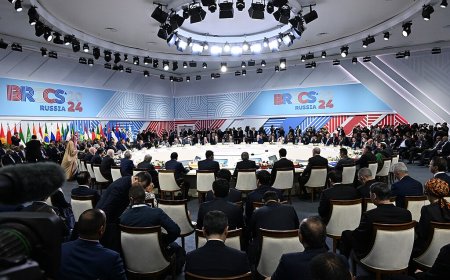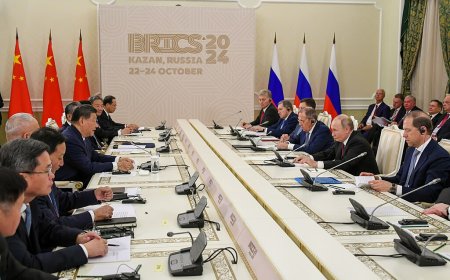This article is part of a series on the effects of the war in Ukraine on African countries. The series is edited by Chris O. Ogunmodede.
Summary
- Despite being the least connected region to the internet, Africa’s digital transformation is a frontier for the geopolitics of digital technologies.
- There is a lot of interest globally in Africa’s digital potential, as well as in the possibility to fast-track its pace and tap into the continent’s market of over 1 billion people. A flurry of international initiatives have been launched and investments made to connect Africans to the internet.
- Meanwhile, the war in Ukraine has showcased that “neutral” service providers of digital technologies can and have become powerful governance actors capable of making unilateral decisions with considerable ramification for information flows.
- Many of these service providers are angling to meet Africa's connectivity infrastructure demands beyond offering digital communication platforms. African policymakers must ensure Africa’s digital economy is not reduced to a pawn on the geopolitical chessboard and a mere battleground for resurgent great power competition between geopolitical blocs.
- African policymakers must also ensure that the laws and regulations governing digital technologies and cyberspace across the continent will advance Africa’s political and socioeconomic development goals in a digital age, and must avoid using these regulations to exert “control” over citizens’ online activity.
Africa is said to be the least connected region of the world to the internet, despite considerable growth in recent years. But despite the continent’s low rate, Africa’s vast digitization potential, buoyed by a young, interconnected population who has come of age in a globalised world, means that it cannot be underestimated or overlooked as a frontier of digital transformation. And on that score, Africa’s immediate priority is not only a matter of connecting the continent’s population to digital tools and services in an affordable and inclusive way; it is also about putting the continent on a trajectory that can enable it adapt to a rapidly evolving geopolitical landscape that has ramifications for technology and the digital economy.
The resurgence of great-power competition between the world’s major geopolitical blocs has major consequences for the future of the internet as a global, interoperable resource, as well as for the use of cyberspace for civilian and military purposes. For instance, China’s "Digital Silk Road," created as part of its Belt and Road Initiative, the United States’ Build Back Better World Initiative, and the European Union’s Global Gateway have all set their sights on Africa’s digital spaces as a frontier of the geopolitics of technology. All three frameworks contain commitments toward Africa’s digital transformation goals. These initiatives exist alongside efforts by a range of other actors, including the World Bank and its Digital Infrastructure Moonshot for Africa, and the United Nations’ Giga enterprise, which aims to connect schools across the continent to the internet.
Beyond the investment in internet infrastructure, there are also efforts to work with African partners to craft digital transformation policies and strategies. The African Union’s Digital Transformation Strategy for Africa (2020-2030) aims to create an African digital single market that the resulting EU-AU digital transformation partnership intends to support by "drawing on the EU’s experience with its Digital Single Market." Elsewhere, India is aiming to export its “India Stack” to African countries as a template for building digital public infrastructure. Private sector actors from across the geopolitical landscape have also set their sights on the continent. Huawei, Google, and Meta, all have made major investments in the infrastructure that they hope will boost Africa’s internet connectivity.
But while these investments, partnerships and digital development frameworks might signal confidence in Africa’s digital potential on one hand, they also set the stage for a “great game” that would create technological spheres of influence in a globalised world. Africa’s digital market potential stands to exceed 1 billion people. As markets saturate in the East and West, technological giants from these economic blocs believe that emerging frontiers in Africa and elsewhere present the most lucrative opportunities to consolidate their domestic base and broaden their global footprint. To that end, many competitors seek to pitch their digital products to African markets and grab as large a share of them as possible.
These considerations raise a crucial question: how can Africa benefit from geopolitical shifts that are affecting the technology sector? How can African countries secure their digital interests, given that most of them lack sovereignty over the internet infrastructure their countries use? The global digital divide notwithstanding, African countries ought to give serious consideration to the terms and conditions with which access to the internet and gateways to the digital economy are provided to the public. For instance, key subsea internet cable providers on the continent will include Google—whose Equiano project will run more than 12,000km across West Africa—and the Facebook-backed 2Africa, which, when operational, will be the longest subsea cable in the world, with landings in 15 African countries. Cloud infrastructure and data centers powering governments' digital services and telecommunications infrastructure could be dominated by Huawei. How can African countries protect their digital interests and avoid their digital ecosystems becoming a mere battleground for great-power competition?
The war in Ukraine offers some insights into the future of digital technology and cyberspace, including as avenues of conflict. Google and Meta have been among a number of Western “Big Tech” giants that made unilateral decisions impacting the free flow of information, long touted as a dividend of digitalization. The steps these companies have taken join a growing list of (in)actions with global ramifications for which they remain unaccountable, especially beyond western capitals—to governments and civil society alike. Their actions with respect to the war in Ukraine, whatever the rationale behind them, essentially amount to placing limits on open communication through these platforms’ services. Meta’s bizarre exception to its hate speech policies, including a scenario where violent “political expression” targeting Russian officials from users in select jurisdictions, as well as praise for a right-wing Ukrainian battalion is permitted, stand out in this regard.
The tech giants claim that the aim of these policies is to limit Russian state propaganda, which until the war, have earned these companies advertising revenue—putting paid to the illusion that tech companies are neutral service providers. And while the limitations they’ve enforced in Russia are on the service and platform layer, they could have broader ramifications in scenarios where these companies double as internet infrastructure service providers as well, as is likely to be the case in Africa. Russia’s counteractions against these companies—banning their use and availability in Russia—will invoke a sense of foreboding across Africa, where governments regularly resort to similar restrictions on internet services. The recent shutdown and eventual service resumption of Twitter in Nigeria comes to mind, illustrating that when bulls fight, it is indeed the grass (in this case, African citizens) that suffers. With the many strategic digital partnerships that African governments have signed with Chinese tech companies, fears abound that they could fuel digital repression and techno-authoritarianism, given African governments’ desire to control citizens’ online activity and Chinese companies’ experience operating in a country that built and has maintained the “Great Firewall”.
The question of what strategic autonomy in the digital age would look like for African countries is worth asking, given the endless dimensions of life that cyber and digital technologies have ramifications for, in war and peace alike. The current policy trajectory across Africa is worrisome. Many laws and regulations related to digital technologies and cyberspace are geared toward inhibiting digital freedoms and empowerment, rather than enabling both. From onerous taxes like e-levies being imposed on digital transactions, to cybersecurity laws that target private citizens for a range of offenses including terrorism and “insulting” presidents instead of boosting cyber capabilities, far too many African governments are operating in dangerously myopic ways, dimming the prospects of unlocking the continent’s digital transformation, and its potential for driving innovation, economic growth and shared prosperity.
This lazy and outdated analog policy posturing in a digital age is a crippling path-dependency that African governments would do well to avoid. The desire to restrict or control the way Africans use digital platforms and cyber tools deflects from the more exigent task of securing Africa’s digital sovereignty, as well as the digital transformation opportunities that lie ahead of a rapidly evolving geopolitical landscape. We need the subsea cables, the data centres, the telecommunications infrastructure and other enabling technologies to close existing and emerging digital divides, but we cannot afford to get the short end of the stick when geopolitical tensions ineluctably flare up again.
In a sense, the policy choices involved in securing Africa’s digital future may come down to tradeoffs. For instance, would African governments prefer to keep suppressing and surveilling their citizenry, or will they heed the writing on the wall on economic and political outlooks from the multiple shocks of the COVID-19 pandemic, climate change, lingering political conflicts, and more? Will they opt to take advantage of the opportunities that digital technologies can offer to reverse the gloomy prospects for a young and growing population?
The digital future for African citizens is fraught with uncertainties. We appear to be little more than pawns on the global chess board, who can be sacrificed at a moment’s notice to the short as well as long term interests of our governments and the great powers in world politics. A creative disruption toward our analog and digital prosperity is our best, and often, only defence.
About the Author
Nanjira Sambuli
Nanjira Sambuli is a researcher, policy analyst and strategist interested in and working on understanding the unfolding, gendered impacts of ICT adoption on governance, diplomacy, media, entrepreneurship and culture. Nanjira is a Fellow in the Technology and International Affairs Program at The Carnegie Endowment for International Peace, and a Ford Global Fellow. She is also a co-Chair of Transform Health, and board member at The New Humanitarian, Development Gateway, and Digital Impact Alliance.




